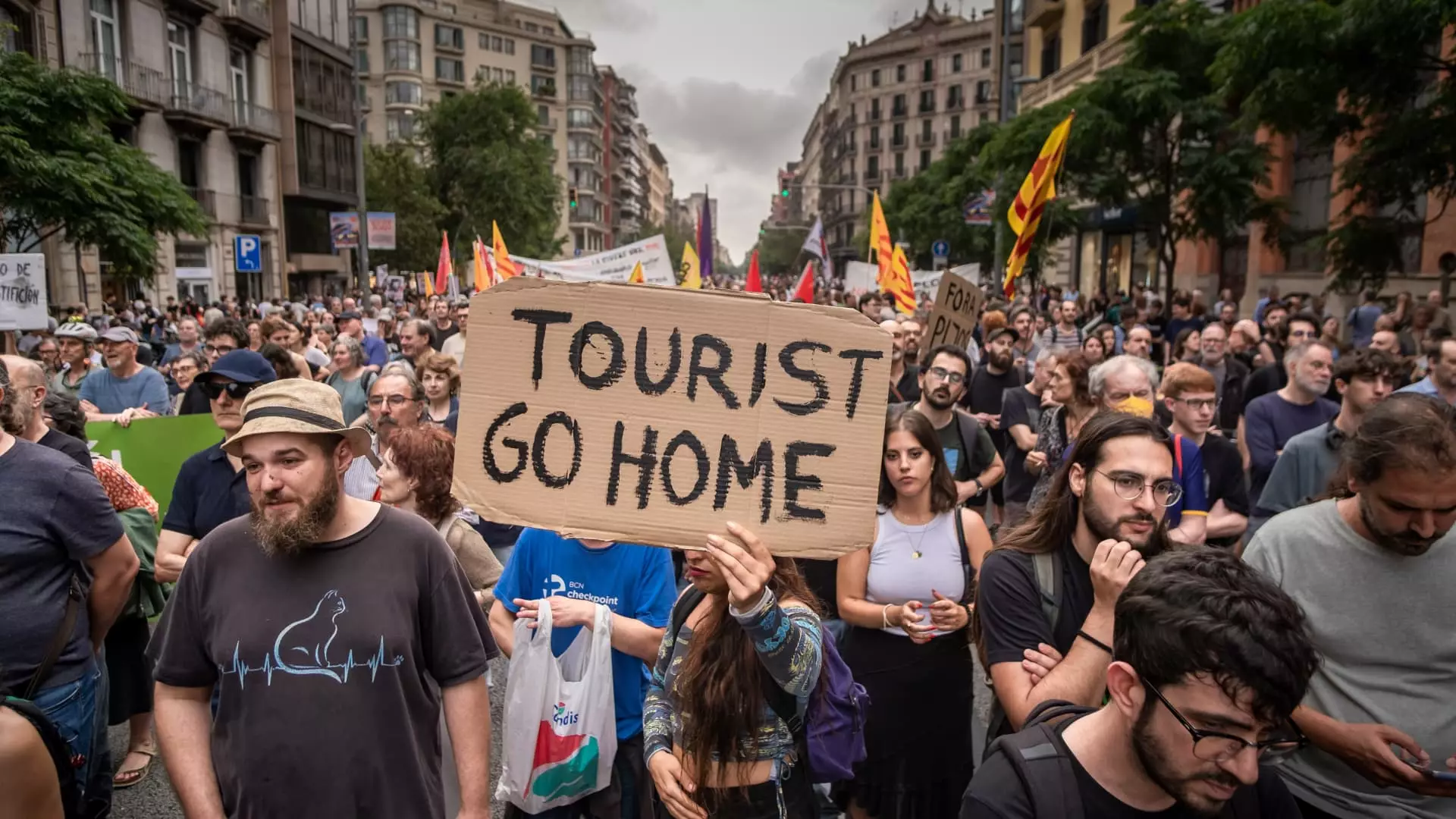In July 2023, Barcelona witnessed one of its largest demonstrations against tourism in recent memory. Thousands of protesters took to the streets, voicing their frustrations with the influx of tourists by chanting “Tourists go home!” This dramatic scene set the stage for an ongoing debate surrounding the sustainability of tourism in the city. Just weeks after the protest, Spain’s tourism board sent out enthusiastic emails inviting travelers, stating, “Spain: the summer you’ll want to repeat every year.” This juxtaposition illustrates the complex relationship between tourism, local residents, and government responses in a city grappling with overtourism.
While some tourists found themselves unwittingly caught up in the protests—experiencing confrontations and being sprayed with water guns—data reveals a surprising resilience in travel to Spain. August saw 10.9 million international arrivals, a remarkable 7% increase from the previous year, according to Spain’s National Statistics Institute. Popular destinations like the Balearic Islands and Catalonia drew significant numbers of visitors, seemingly unaffected by the controversy unfolding in Barcelona.
Protests and Their Impact on Tourism
Although international arrivals surged, not every tourist felt indifferent to the protests. A survey from Mallorca’s tourism board highlighted that 89% of American travelers were either unaware of the demonstrations or unconcerned about their implications. Among those who were informed, nearly 70% reported that the protests had no bearing on their travel decisions. Yet, despite this resilience, data from RateGain revealed an immediate 23% decline in hotel bookings for Barcelona and a 35% decrease in search activity following the protest. These figures suggest that while the long-term interest in visiting may remain strong, immediate reactions to civil unrest can disrupt booking trends.
Nonetheless, by early September, the numbers rebounded, indicating that tourists, particularly from Europe, are willing to overlook protests for their vacation desires. This raises important questions about the efficacy and the fallout of such protests. Are they merely fleeting moments in a much larger system that prioritizes economic gain over residents’ voices and experiences?
A significant aspect of the protests was led by the Assembly of Neighbourhoods for Tourism Degrowth, a group advocating for substantial changes to Barcelona’s handling of tourism. The movement seeks not only to address the immediate grievances caused by overtourism but also to propose a broader shift in tourism management. Their 13 demands range from reducing cruise terminals to limiting the short-term rental market. They have insisted that local officials must prioritize residents’ quality of life and sustainable tourism practices over revenue generated from an ever-increasing number of visitors.
In response, the Barcelona City Council announced new measures aimed at countering overtourism, including a detailed 135-page policy titled “Government Measure For Tourism Management 2024-2027.” This document outlined 55 actions to help balance the needs of tourists and residents. However, Rivacoba, a representative from the Assembly, described these government measures as “cosmetic speeches” designed more for public relations than genuine reform.
While the local government insists that managing tourism is a priority—citing that tourism accounts for 14% of the city’s GDP—the community remains skeptical. They argue that merely managing visitor flows is inadequate; what is needed is a critical reassessment of the very structure of tourism in Barcelona.
Despite the challenges, the protests have sparked increased awareness and solidarity among various stakeholders, including local residents and international audiences. Rivacoba suggests that the public perception of tourism in Barcelona is rapidly changing. “Tourism is good for everyone” is losing its legitimacy as more residents voice their experiences of discomfort and disruption caused by excessive tourist traffic.
Rivacoba also confirmed that preparations for additional protests are underway. With the recognition that overtourism is a widespread issue, similar movements are emerging across various regions. This solidarity may lead to stronger calls for action and influence the direction of future tourism policies.
According to industry leaders, such as Booking Holdings’ CEO Glenn Fogel, protesting may not be the optimal path to resolving overtourism. He emphasizes that a collaborative approach involving governments, residents, travelers, and travel companies is essential to tackle this problem effectively.
The Path Forward
As Barcelona continues to navigate its tourism dilemma, the juxtaposition of protest and promotion underscores a crucial tension. While the desire for profitable tourism growth persists, local voices advocating for change are increasingly gaining traction. Balancing economic interests with the needs and well-being of residents will be critical in determining the future trajectory of tourism in Barcelona. The continuation of protests and community efforts may very well shape a more sustainable tourism model, offering a path forward that honors both visitors and locals alike.


Leave a Reply